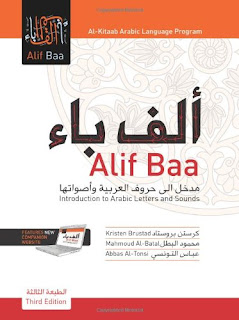The UN agency that promotes education wants a say in how future textbooks are written, and Saudi Arabia -- a nation whose own school books have been criticized for promoting hatred of Christians and Jews -- is helping to bankroll the effort.Well, those critics underestimated the issue.
The United Nations Educational, Scientific and Cultural Organization (UNESCO) is currently working with member states to revise its strategy for the publication of textbooks and learning materials. According to UNESCO's website, experts from 21 countries met in Paris last month at a meeting financed by a $29,000 Saudi donation and focused in part on "ways to ensure that content aimed at students systematically reflects cultural and religious diversity, and avoids gender stereotypes."
Then, last week, Saudi Arabia's King Abdullah cut a $20 million check to UNESCO's emergency fund.
Critics warn that the funding will come at a price, and predict the Saudis will want input into what goes into rewritten textbooks.
Because the Saudis are not only adding input into the process - they are creating it.
From UNESCO:
UNESCO and the King Abdullah Bin Abdulaziz International Centre for Interreligious and Intercultural Dialogue (KAICIID) convened education experts to test a tool to assist educators in writing textbooks which are free of stereotypes and prejudices about culture, religion and gender. The tool is needed to assist in curriculum development worldwide as well as to assess current textbooks in circulation or develop new ones. It will eventually be used to communicate curriculum recommendations to textbook authors, in both public and private sectors. KAICIID and UNESCO organized the workshop to test the tool in Vienna, Austria, from 1-3 July 2015.The KAICIID has already released a similar toolkit for journalists to report on "religions" (meaning, Islam) more to the liking of the Saudi royal family. This toolkit seems to be a project of the Saudis, rubber stamped by UNESCO and some handpicked "independent" educators.
The importance of textbooks in influencing societies cannot be emphasised enough. As Noro Andriamiseza from UNESCO explained: “a curriculum consists of more than textbooks, but textbooks are an important part of a curriculum, the most visible part”. Textbooks can support diversity and coexistence, but when they include prejudices, they can divide societies. The workshop aimed to gain feedback and recommendations to further improve the tool prior to its publication.
The workshop is part of the Memorandum of Understanding between the King Abdulaziz Center for National Dialogue and UNESCO, that established the “Abdullah bin Abdulaziz International Programme for a Culture of Peace and Dialogue” and builds on outcomes from the UNESCO Forum on Global Citizenship Education.
KAICIID’s educational programme includes the Image of the Other Programme that focuses on building accurate representation of religious and cultural diversity through interreligious and intercultural education. The programme supports the exchange of ideas and approaches, serving as a platform for public outreach, sharing best practices, ideas and materials trans-regionally.
It also includes the KAICIID Policy Network (KPN), a platform for experts and governmental focal points to discuss interreligious and intercultural education in formal and non-formal education. The focus includes interreligious education, curriculum development and evaluation tools, teacher training and new e-learning resources.
I need not point out the irony of an initiative to teach tolerance of other religions coming from a country where the public observance of any religion besides Islam is illegal.
It's been a long time since I looked at the topic, but I have some old posts about what Muslim leaders often mean when they talk about "dialogue:" they mean that others should listen to what Muslims have to say, but not the other way around.

